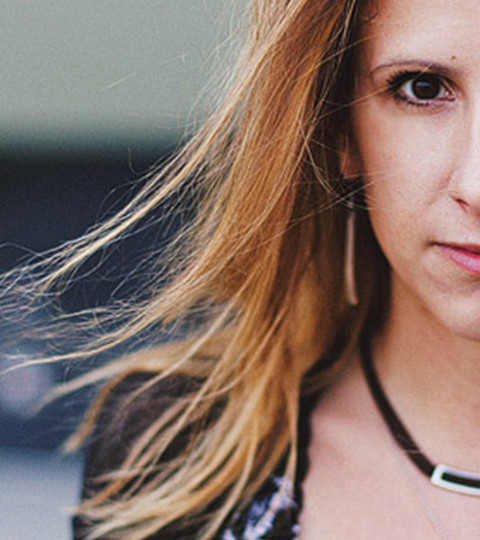Brittany Perham is the author of Double Portrait (W.W. Norton, 2017), which received the Barnard Women Poets Prize; The Curiosities (Free Verse Editions, 2012); and, with Kim Addonizio, the collaborative chapbook The Night Could Go in Either Direction (SHP, 2016). She is a Jones Lecturer in the Creative Writing Program at Stanford University, where she was a Wallace Stegner Fellow. In 2016 she received the Elizabeth Matchett Stover Memorial Award given by Southwest Review; she has also received awards and fellowships from the Elie Wiesel Foundation for Humanity, the Dorothy Sargent Rosenberg Fund, and the James Merrill House Foundation. She is available for workshops and readings; get in touch at bperham (at) stanford (dot) edu.
Editor’s Note:
As this fall’s poetry editor, I’ve enjoyed finding the poems that will accompany your coffee over the next months. As I spoke with the poets whose work is represented here, many had the same question: what words would we like to find in our coffee beans? The answer was different for each of us, as you’ll see in the poems themselves. As I was speaking with our poets, I began to think about my own idea of morning—morning which can be a symbol of newness, a chance to start again, to do better, to feel hopeful about the future. Then I remembered that I hate those clichés, that they in fact make me mad—or at least envious. What lucky person feels hopeful upon waking? I am hopeful that there are some of you morning people out there and I am hopeful that you can teach me your secret. But, in the meantime, morning often feels to me like an impossible challenge. I wake up to my brain reentering its own little dramas and to the worry of the bad news for our country and our planet that will be lurking on my computer screen. In short: it’s a dark time even though I hardly ever have to wake up in the actual dark. But in the spiritual darkness, with one eye half open, a very small voice is saying, is there coffee?
Coffee makes it better. It’s a morning miracle. After coffee, I do not feel so scrape-me-off-the-floor horrible. I am comforted by the fact that I can fulfill my caffeine addiction and my desire for routine all at once. But what does any of this have to do with poetry? Well, there’s this: I have changed my morning routine since Trump’s election. The coffee stayed. The news and email and social media did not—at least not for the first few minutes. The cycle of waking up to the Washington Post or to the Twitter headlines—and the accompanying electric moment of terror, and the disorientation of reality set against rationality, and the hopelessness of knowing that what we were seeing was in no way new—had to be reset. I knew this was true when I went from feeling things to feeling nothing. I became desensitized and impenetrable: my most cynical self. I know I’m not alone in this. Many of my friends, and perhaps many of you, have experienced something in the last nine months that necessitated change both large and small. For some of us, some of these changes involved poetry, both in the ways we wrote it and in the ways we encountered it in the world. Some of us set our homepages to poetry websites so that a poem would be the first thing we’d see each day. Some of us kept a book by the bed, or read a literary magazine before the newspaper. Some of us taped a poem to the fridge and memorized a little each day. We recited what we’d learned the day before while waiting for the coffee.
Why? Why did so many of us want a poem to be the first thing we let into our brain each day? I think it has to do with the fact that poetry allows us to feel, and that it transmits that feeling both through and outside of time. It ties us to the present moment and releases us from it. Some poems allow us to feel by witnessing and addressing the world as it is, and by giving us a language we can use to make our own address. Some poems make a call to action and require us to respond. Some poems chart the way a single brain makes connections and allow us momentarily to live inside that brain. Some poems still and distill what is beautiful so that we, too, can see it. All poems give us a voice from the ether: someone is speaking something to us. We feel that voice enter us. And, perhaps because of this, we also feel that each poem carries some of our human history: the history of individual selves living and dying on a single planet in a speck of time. When we read a poem we become participatory in that history: we are not alone.
I hope you will feel something—something I’ve described above, or something else entirely—as you read through the poems that will arrive with your coffee over the next few months. I’ve tried to give us a range of voices that are varied in method, in style, in concern but that all remind us of our great capacity to feel. Many of these poets are emerging writers; all of them are working right now in the Bay Area. Their poems have taught me new music, made me laugh (both gleefully and sardonically), allowed me to speak more freely, called on me to look closely, and accompanied me in a bleak landscape. And because these poems make me feel something, they make me hopeful, even in the morning. I hope they will give you a place to begin.


1 Comment